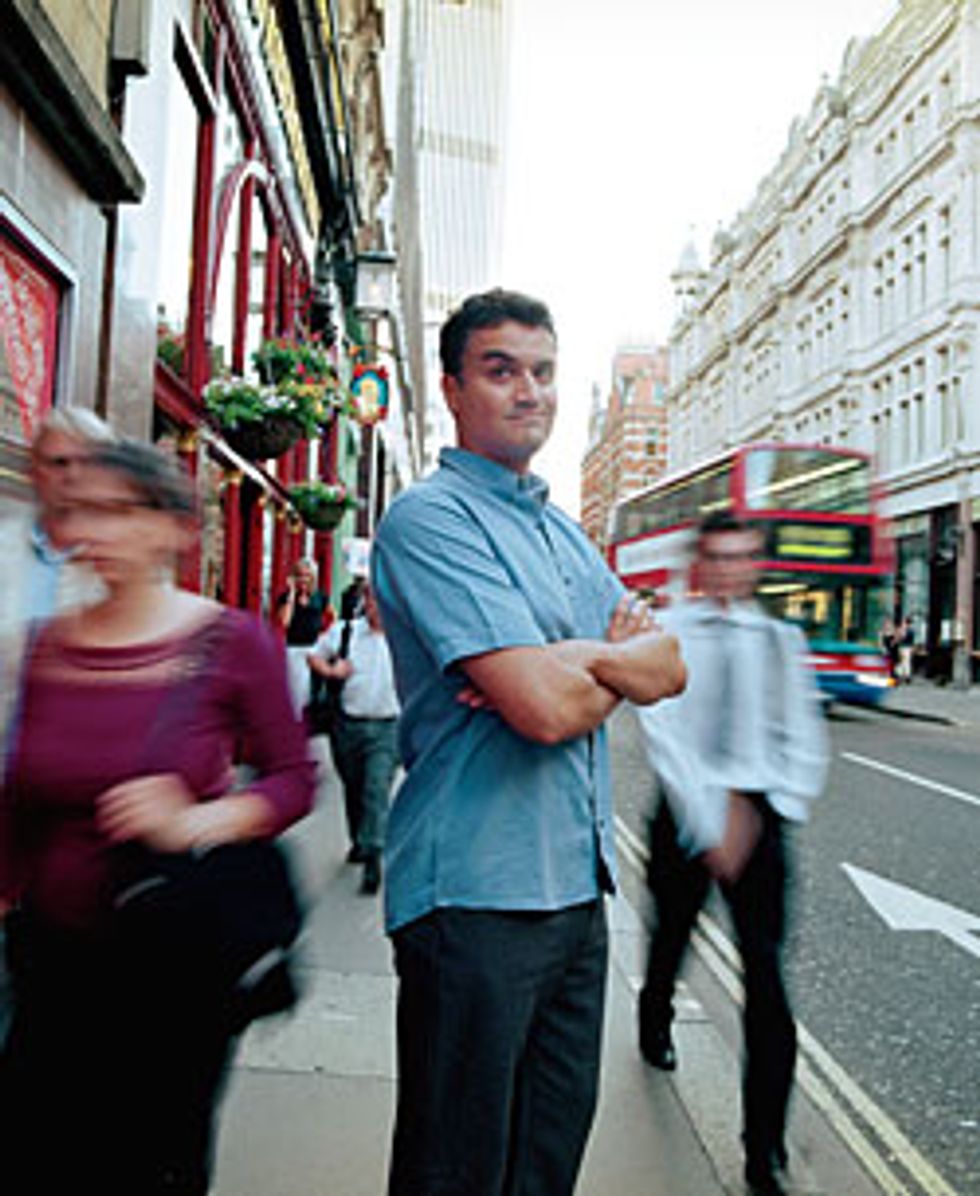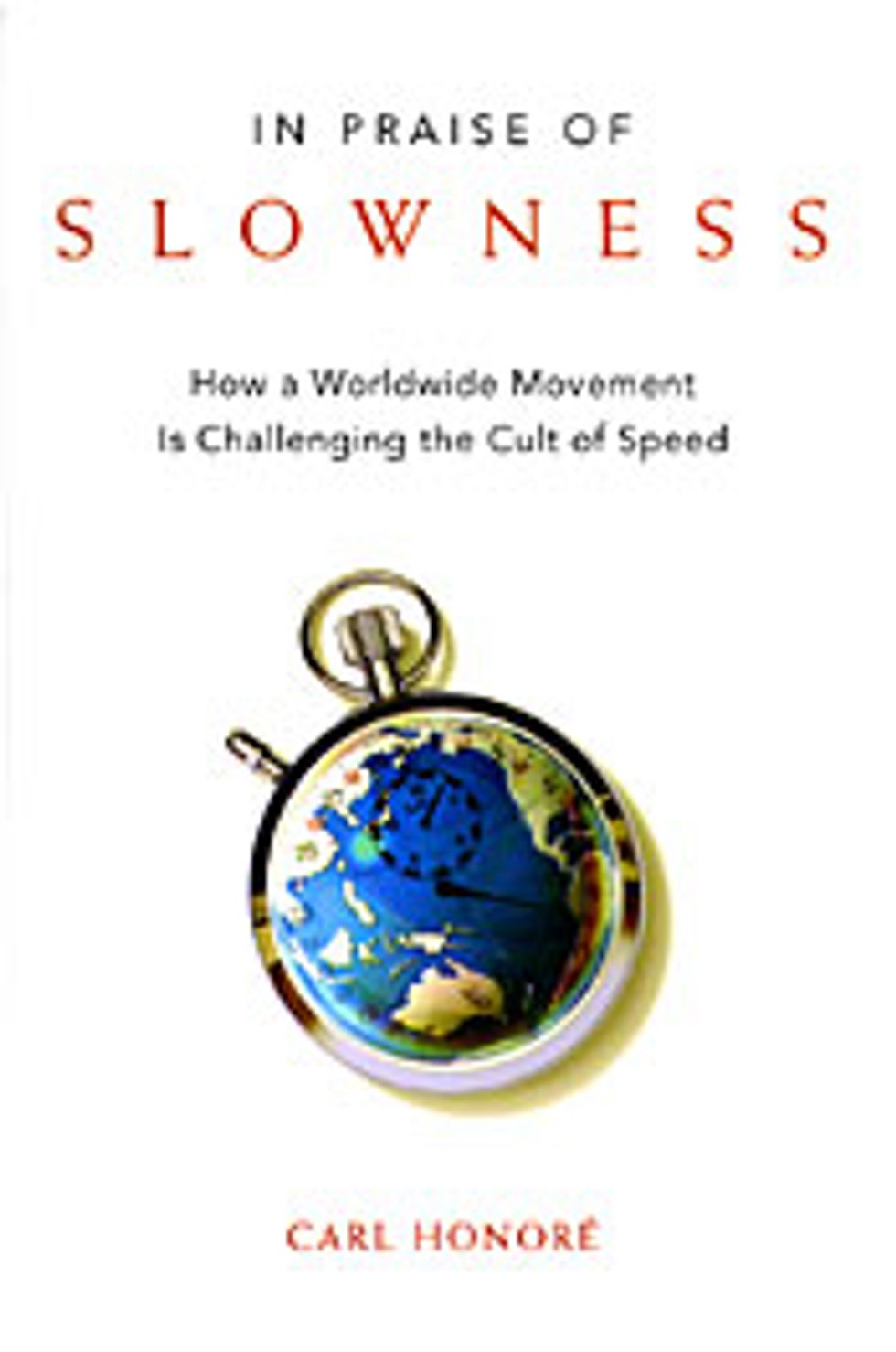Most of us cherish our ability to multitask: it's a mark of techno-mastery in today's always-on world. But by cramming more and more into already crowded days, are we really making our lives better or more productive? All over the world--from Silicon Valley, where software developers are rejecting the industry norm of unpaid overtime; to Europe, where city planners are mandating quieter, pedestrian-friendly neighborhoods; to Japan, where legislators have made job-sharing easier--a growing number of people are clearly saying no. Journalist Carl Honoré believes these are symptomatic of the beginning of a sea change in industrialized nations. IEEE Spectrum Associate Editor Stephen Cass talked to him about his book, In Praise of Slowness: How a Worldwide Movement Is Challenging the Cult of Speed , and asked him how and why we should get off the multitasking merry-go-round.
London-based Canadian journalist and author Carl Honore pauses amid the hustle and bustle of the city.
What provoked you to write this book? It was after I started reading bedtime stories to my son. I came across an article in the newspaper about timesaving tips, and it had a reference to a series of books called One-Minute Bedtime Stories . My first reaction was: "Hallelujah, this is exactly what I need!" And then, thankfully, my very next thought was: "Whoa, hang on. Has it really come to this? Am I really prepared to fob off my son at the end of the day?" From there I began looking at how my whole life had just become this endless exercise in trying to do everything faster.
Hasn't dealing with a faster pace been a part of life since, at least, the Industrial Revolution?
It's true that there have always been people calling attention to the damaging effects of speed. But it seems to me that we've reached a kind of breaking point now, that things have gotten so fast that they're taking such a toll on not only our health but our ability to enjoy things. It seems to me that we're so hurried and so hectic that we've almost lost the art of just being in the moment and taking real pleasure from things. We're so busy trying to get things finished so we can keep multitasking. We're kind of just whizzing through our lives instead of living them.
And now, if you go across the industrial world, you'll really find a very strong groundswell against that. People are slowing down in all walks of life. I've been traveling around and writing about it and hearing back from people, and there's a real sense of a slow movement in its early stages and [it's now] reaching critical mass.
What does being part of the slow movement mean on a day-to-day basis? One of the key things is unplugging at some point in the day. We've got ourselves into this state where we're never off the grid. The cellphone's always there, we're always checking our e-mail; you've even got the laptop in the kitchen--e-mails at breakfast! That's very wearing, and it keeps you in a hyperstimulated state where the brain cannot slip into what psychologists call slow-thinking mode, when it's relaxed and the slower brain waves deliver more nuanced, richer solutions to problems.
In Praise of Slowness: How a Worldwide Movement Is Challenging the Cult of Speed
By Carl Honore Harper San Francisco, 2004, 320 pp., US $25 ISBN 0-0605-4578-X
It's often a little bit daunting at first, but once you make the step and find some time in the day when you can switch off your cellphone and get away from technology, you'll find you'll operate much better the rest of the time.
That might work while I'm at home, but in business, if I'm not working as fast as I can, surely I'm going to lose to everyone who is?
Speed in business is good, and faster often is better. The problem is when we get the idea that it's always better. Companies get locked into this idea that "Oh, God, we've got to get this done by tonight or the whole of our business will fall apart." But when they actually get out of that whipped-up, slightly neurotic state and take a step back, very often businesses find that they can take a little bit more time and deliver much better goods or services.
Forward-looking businesses are waking up to the fact that you can't keep people in full-throttle mode all the time, because they'll just burn out, and they won't be as creative or as energetic as they were before. It's not a question of can we survive by slowing down in business. It's a question of can we survive if we don't slow down.

